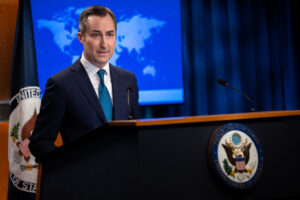Social media giants failing to act on 89% anti-Muslim posts
NEW YORK (AA): Social media companies are failing to act on 89% of posts containing anti-Muslim hatred and Islamophobic content reported to them, according to a recent report.
“This report exposed that social media companies, including Facebook, Instagram, TikTok, Twitter, and YouTube, failed to act on 89% of posts containing anti-Muslim hatred and Islamophobic content reported to them,” said the Center for Countering Digital Hate (CCDH).
In a joint statement in 2019, Meta, Twitter, and Google committed to uphold the Christchurch call to eliminate terrorist and violent extremist content online.
The social media giants stated that they would be resolute in their “commitment to ensure they are doing all they can to fight the hatred and extremism that lead to terrorist violence.”
“Once again, their press releases prove to be nothing more than empty promises,” the report said.
The CCDH researchers reported 530 posts which contain disturbing, bigoted and dehumanizing content that target Muslims through racist caricatures, conspiracies and false claims.
These posts were viewed at least 25 million times.
Many of the abusive content was easily identifiable, and yet there was still inaction, it said.
Stating that Instagram, TikTok and Twitter allow users to use hashtags such as #deathtoislam, #islamiscancer and #ragheadi, the report further said content spread using the hashtags received at least 1.3 million impressions.
Such content further endangers these communities by driving “social divisions, normalizing the abusive behavior, and encouraging offline attacks and abuse,” it added.
“Worse still, platforms profit from this hate, gleefully monetizing content, interactions, and the resulting attention and eyeballs. For them, hate is good business,” it said.
The damning report underscores how global social media giants are complicit in the dangerous spread of Islamophobia that threatens Muslim communities globally. It also brings to light how the spread on hateful content on social media is condoned because the views such content gets helps to generate money. Commercial motives, therefore, take precedence over ethical considerations. The cost of the spread of hate on social media is borne by vulnerable Muslim minorities who live in fear for their lives and dignities while struggling to adhere to their faith.











